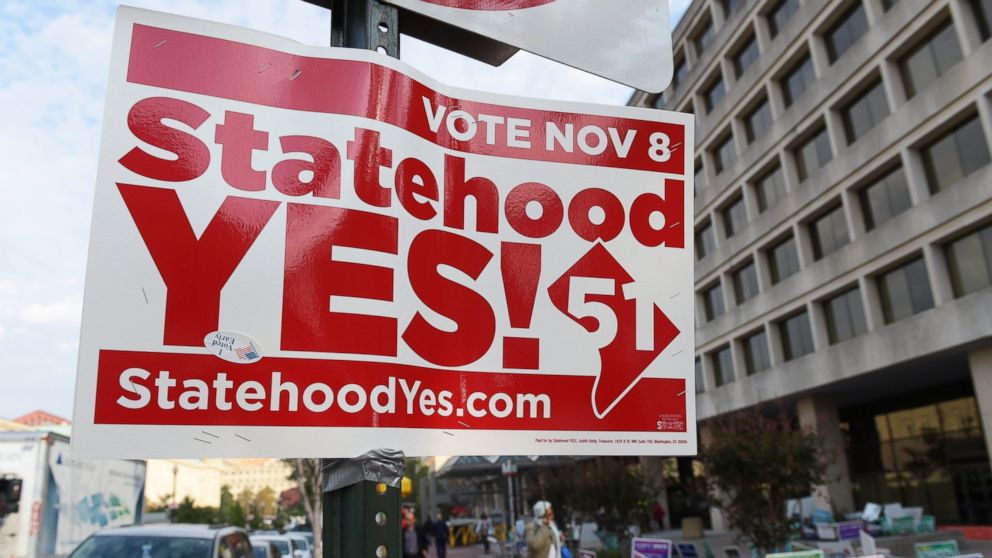The Nation's Capital to Vote on Full Statehood
Residents in the nation's capital will vote if DC should become the 51st state.

— -- On the ballot in the nation's capital on Nov. 8: whether the District of Columbia should become the 51st state.
D.C. is home to more than 650,000 residents who do not have a voting representative in the Senate, though they do have a delegate in the House, and all residents must pay federal taxes.
The lack of a vote in the more senior house of Congress is a sticking point with many D.C. residents. A popular version of the city's license plates is emblazoned with the phrase "Taxation Without Representation."
If the referendum on the ballot is successful, District leaders would bring the plan to Congress. But, even if that were to happen, the District will still be a long way from becoming a state.
Here’s a look at the specifics of what District residents will consider on Tuesday.
What’s on the Ballot
The referendum asks voters if they want to turn the nation's capital into a new state and includes language calling for the end of Congress having control over D.C.
The ballot measure mimics the bid by Tennessee in the 1700s to become a state, which asked voters to approve the new state’s boundaries and pledge to support a representative form of government.
What the 51st State Would Look Like
D.C. Mayor Muriel Bowser has proposed calling the state "New Columbia." It would likely be smaller than the city’s current boundaries.
Federal property would be carved out around the White House, Capitol and National Mall for a federal district, as is required by the Constitution. This land could not be part of the new state and it's unclear how much land would have to be set aside for the new federal district.
The remainder of current District of Columbia, which is about 68 square miles, would likely be used to make up the new state.
The Chances D.C. Statehood Could Happen
For the District to become a state, Congress would have to propose an amendment to the Constitution, which would then have to win a two-thirds majority vote in both the House and Senate.
A Republican-controlled House or Senate would likely oppose statehood since they believe that would add three Democratic representatives to Congress: two in the Senate and one in the House.
Some proponents of D.C. statehood in the past have floated the idea of giving Republicans one more House seat in a solidly red state as a trade-off. But the suggestion hasn't gained traction with the GOP.
Washingtonians petitioned for statehood in the 1980s and Congress did not move it forward.
The momentum behind adding the new state could come down to the new president's support or lack of support for the issue.
Democratic nominee Hillary Clinton has said she supports D.C. statehood, but GOP presidential nominee Donald Trump said he doesn't have an official position.